Sprawl
The 'Little Asphalt' Solution for Better Communities
Little Asphalt minimizes pavement in cities, towns, and suburbs so that real estate can be used for higher value purposes—such as buildings and people-centered activities.
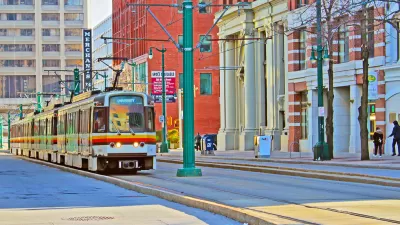
Buffalo: Retrofitting a Rust Belt Capital
Author Catherine Tumbler writes on how this Rust Belt city on Lake Erie is attempting to capitalize on its past, reverse its mistakes, and build a greener economy.
Op-Ed: Austin a Shadow of its Former Self
An op-ed by David Heymann produces an elaborate, protracted metaphor of Austin as a former youthful "golden child" now showing the least attractive possible traits of middle age.

Where Los Angeles Equals San Francisco's Density
Though the Los Angeles region is very dense, significant barriers to transit-oriented planning remain. Based on this analysis, the lack of a central urban core shouldn't be one of them.
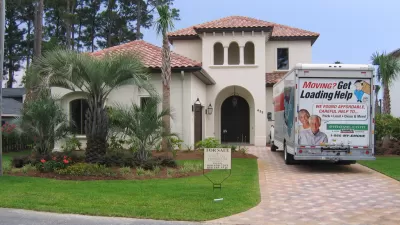
Affluence Still at Home in the Suburbs
Commentators often say an influx of wealth is transforming American cities. But if prosperity is really still suburban, what are the consequences for the environment?
Surveying the Results of 150 Years of Persistent Growth in Atlanta
The American Institute of Architects will visit Atlanta this year, a month after the 150th anniversary of the end of the Civil War. What should we know about the city as it exists today?
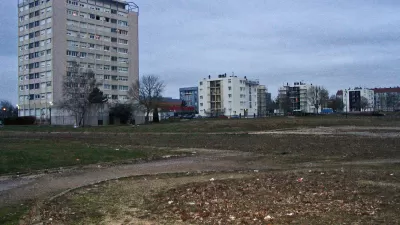
Renzo Piano on the Potential of Suburbs
In an interview, architect Renzo Piano says European suburbs are not desolate. He argues they shouldn't be treated as such in the quest for cohesive cities.
Denver's Building Boom Happening on the Fringes
According to a Denver Post article, the Denver metropolitan area has 31,000 homes in the development pipeline. All but 2,600 of those homes would be built in suburban counties surrounding Denver.

On the Benefits of Compact Development
The environmental think tank environmental Sustainable Prosperity has created a handy infographic describing the benefits of dense urban development compared to sprawl.
Where and How 'Agrihoods' Work
A post on the Lexington Streetsweeper blog examines the idea of Farming Community Subdivision, or "agrihood," and the plausibility of such a community being created in Central Kentucky.
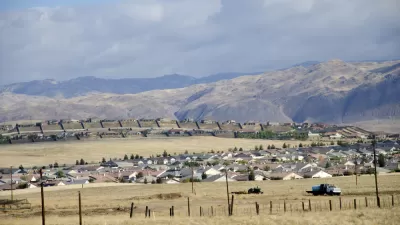
Book Review: Zoned in the USA
"Zoned in the USA: The Origins and Implications of American Land-Use Regulation," by Sonja Hirt, describes the exceptional characteristics, compared to European land use regulations, that make U.S. zoning laws so conducive to sprawl.
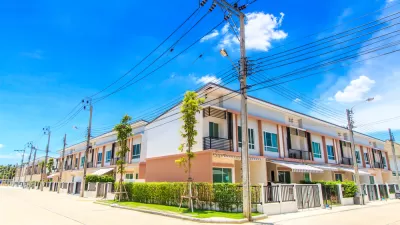
Suburban Multifamily: Smart Growth or Smart Sprawl?
In suburbia, the line between smart growth and conventional sprawl is sometimes a blurry one.

More Critique of Demographia's International Housing Affordability Survey
The Demographia International Housing Affordability Survey contains significant biases and errors. It is important that anybody working with the survey's results be aware of these problems.

Talkin' Right, Leanin' Left: The 'New Consurbanism'?
If we remove our ideological blinders, we might notice that the traditional city serves the interests of both the Left and the Right. Common ground, literally and figuratively. Ben Brown explores.

Top Planning Trends – 2014
A deeper look at the traffic data on Planetizen reveals trends from the planning and urban design conversation of 2014.
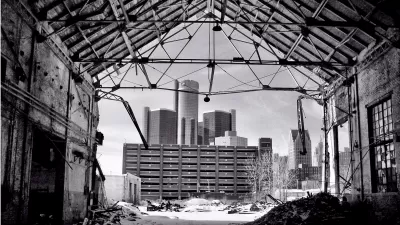
Is Mismanagement the Cause of Legacy Cities' Decline?
One common argument against attempts to control sprawl near declining cities is that the problem is the fault of mismanaged city government.
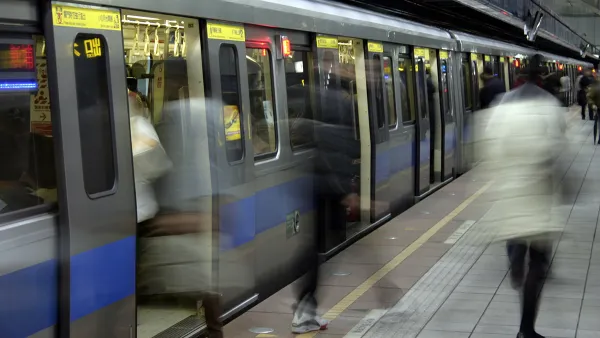
Critiquing the 'Twenty Percent' Argument Against Transit Funding
This post critiques a common argument against federal support for public transit: that transit gets 20 percent of transportation spending yet has a much lower market share.
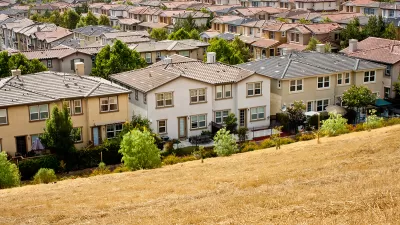
Do Zombie Subdivisions Have a Future?
Alana Semuels writes about the state of the zombie subdivisions scattered around the western United States—a derelict reminder of the high water mark of the last master planned community building boom.
Switching to Transit in Atlanta—Affordable but Unlikely
Darin from ATL Urbanist picks up on a recent report by the American Public Transportation Association (APTA) finding that residents of Atlanta can save big money by ditching their cars and riding transit.

How To: Smarter Infrastructure Investments
In the next few decades, U.S. governments and businesses are predicted to spend trillions of dollars on infrastructure. This is the reality. The question is: how do we get smart about these investments?
Pagination
Urban Design for Planners 1: Software Tools
This six-course series explores essential urban design concepts using open source software and equips planners with the tools they need to participate fully in the urban design process.
Planning for Universal Design
Learn the tools for implementing Universal Design in planning regulations.
Smith Gee Studio
City of Charlotte
City of Camden Redevelopment Agency
City of Astoria
Transportation Research & Education Center (TREC) at Portland State University
US High Speed Rail Association
City of Camden Redevelopment Agency
Municipality of Princeton (NJ)


































